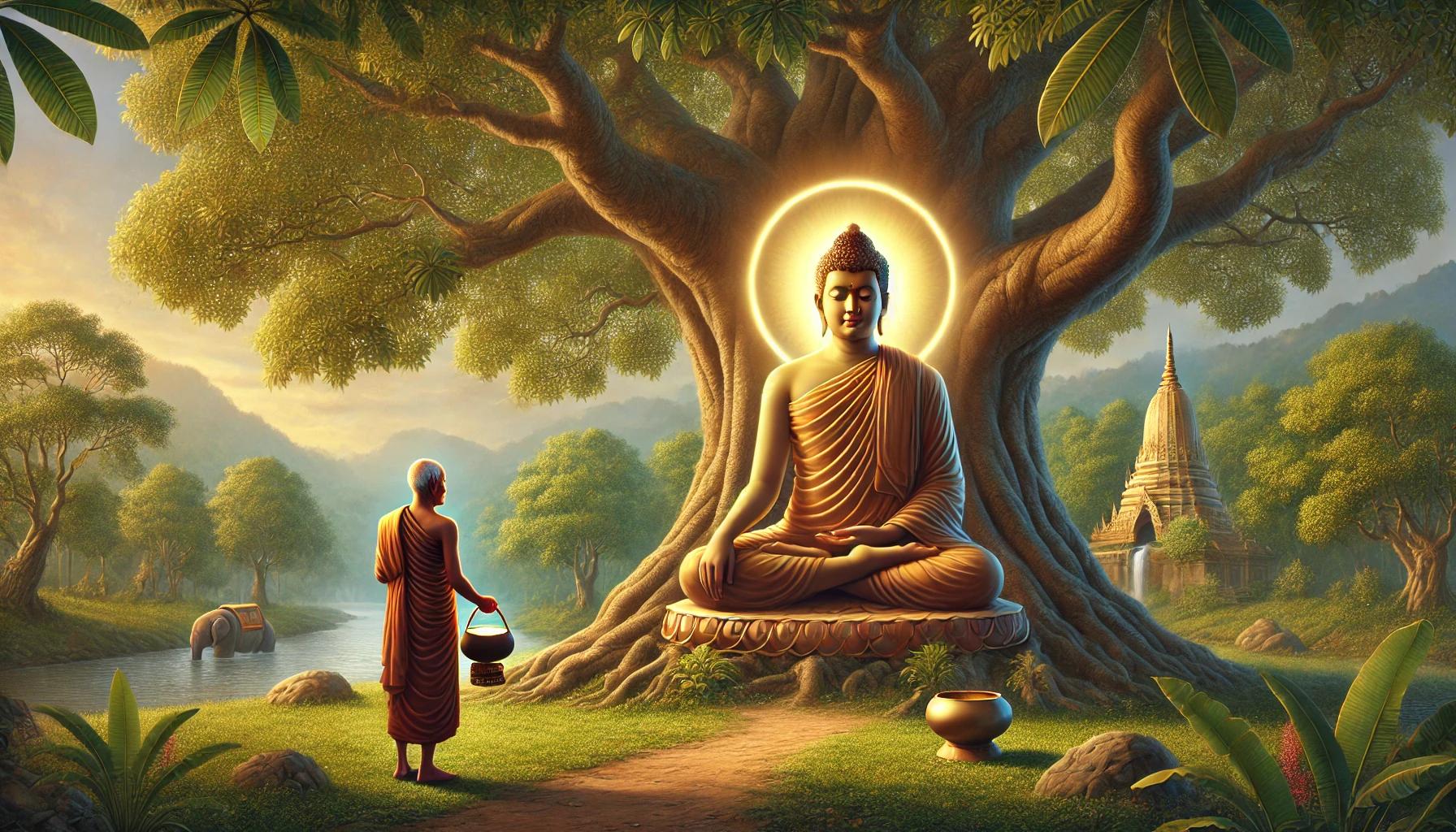
Date: 03/09/2024 03/10/2024
Location: Star Lake Meditation Center
Teacher: Otto Huang
Dharma Talk
The Solitary Practice Setbacks of Mihira
Once, the venerable Mikkasara asked Buddha:
“Lord! What is solitary living? And what is living with companions?”
Buddha replied:
“Mikkasara! When the eye and the other five senses perceive forms and the other five objects, if desire, likability, and pleasure arise, leading to joy, praise, and attachment to these objects, this is the arising of the mind tainted by love. Once the mind is tainted by love, obstacles and constraints arise. In this way, a monk bound by joy and love, even if living alone in secluded places like forests, is still living with a companion. Why? Because craving is their companion.
Conversely, if one does not take delight in, praise, or cling to likable, pleasing objects and is not bound by love, such a monk, even if living with other monks or in a village among laypeople, is considered to be living alone. Why? Because he has no companion like craving.”
Once, Buddha traveled to the village of Jotu within the Magadha kingdom, staying in the Anupama forest outside the village, with the venerable Mihira serving as Buddha’s attendant.
One morning, venerable Mihira went into Jotu village for alms. On his way back, passing by the Kinpiya river, he saw the serene Anupama forest and thought: This forest, with its flat terrain and clear river, is an ideal place for a diligent practitioner. I should practice here and make progress.
After eating, Mihira packed his belongings, placed his sitting mat on his shoulder, and asked Buddha for permission to go there.
However, since only venerable Mihira was staying with Buddha at the time, and the other monks had not arrived, Buddha asked Mihira to wait a few days until the others arrived to avoid being without an attendant. But Mihira, eager to go to that place he considered ideal, said to Buddha:
“World Honored One! You are already liberated, having practiced and realized all that is to be practiced and realized. There’s nothing more to be done for you. As for me, there’s still much to practice and realize. If I can go to a good place and practice diligently, I will surely make progress. Please allow me to go to that Anupama forest to practice.”
Buddha still wished for Mihira to wait. However, the determined Mihira made his request a third time. Then, Buddha said:
“Mihira! You insist on going to practice diligently, what more can I say? Go as you wish!”
After bidding farewell to Buddha, venerable Mihira went to the serene forest and chose a tree for meditation.
During meditation, Mihira could not suppress the arising of greed, hatred, and delusion. He thought: Why is this happening? Despite my confident renunciation and diligent practice, I still cannot eradicate these three poisons. Thinking this, he longed for Buddha and returned to him.
Upon seeing Buddha, Mihira honestly reported his inability to suppress the three poisons during solitary practice. Clearly, from the perspective of liberation practice, Mihira was not yet mature enough for solitary practice. Thus, Buddha said:
“Mihira! There are five practices that can mature those not yet prepared for the practice of liberation:
One, associate with good spiritual friends and studying under their guidance.
Two, observepramukha meticulously, act with dignity, and maintain a cautious attitude even towards minor offenses.
Three, familiarize oneself with various Buddhist teachings and logic, and embrace them deeply.
Four, diligently learn various methods to eradicate unwholesome actions and cultivate wholesome ones.
Five, contemplate the impermanence of life and death to cultivate wisdom that leads to the cessation of suffering.
Mihira! After mastering these five practices, continue to practice four more:
One, practice the contemplation of impurity to eliminate greed.
Two, practice loving-kindness and compassion to eliminate anger.
Three, practice mindfulness of breathing to eliminate a distracted mind.
Four, contemplate impermanence to eliminate ego.
Mihira! If one can be close to and guided by good spiritual friends, surely one can diligently uphold percepts, maintain thepramukha, act with dignity, and observe even the minor offenses with caution and fear; become familiar with various Buddhist teachings, theories, and deeply understand and accept them; firmly progress, proactively learn various methods to eradicate evil actions and cultivate good ones; skillfully contemplate the impermanence of life and death, and achieve the wisdom that aspires to the cessation of suffering; diligently practice the contemplation of impurity to eliminate greed; diligently practice the contemplation of loving-kindness and compassion to eliminate anger; diligently practice the mindfulness of inhaling and exhaling to eliminate a distracted mind; diligently contemplate impermanence to eliminate pride.
Mihira! If a monk accomplishes the contemplation of impermanence, he will surely be able to establish the notion of non-self from it, and if a monk achieves the notion of non-self, he will be able to eliminate pride from it and achieve the liberation of Nirvana.”

